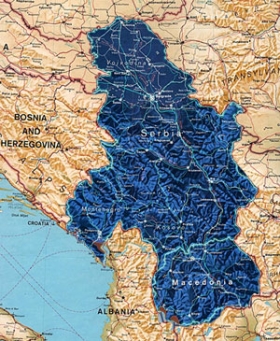Odbor za gradjansku inicijativu (Committee for Civic Initiative) initiated a project "Non-Institutional Partakers of Cultural Policy in Serbia, Montenegro and Macedonia". Project partners are: Remont from Belgrade, Expeditio from Kotor, and the Center for Contemporary Art from Skopje.
The project „Non-Institutional Partakers of Cultural Policy in Serbia, Montenegro and Macedonia" has a three-fold aim: a) to examine the capacities of key cultural policy partakers in these states who act outside the system of public/state cultural institutions (NGOs dealing with culture, independent cultural organizations, artist associations, informal art groups, non-profit culture clubs); b) to map and assess the strength of these independent culture scenes, and c) begin the process of an operative/tactical networking of cultural policy partakers at the national and regional levels. Key activities within the project include: a) conducting one hundred semi-structured interviews with representatives of key non-institutional cultural policy partakers in these states, b) publishing a book with the results of the mapping of three independent culture scenes, c) organizing three one-day networking meetings at the national level, and d) holding a three-day conference with the participation of representatives of non-institutional cultural policy partakers from all three states.
The primary target group of our project are the cultural policy partakers in Serbia, Montenegro and Macedonia who act outside the system of public/state cultural institutions (NGOs dealing with culture, independent cultural organizations, artist associations, informal art groups, non-profit culture clubs). Considering their atomizedness, underdeveloped cooperation with official cultural institutions and other organizations of civic society and their minor influence on cultural policy decision makers on the one hand, and on the other, considering the withdrawal of international funding bodies which provide aid for culture from the region of Southeast Europe, we believe that non-institutional cultural policy partakers in all three states are now in a position where they have to change their strategy, join the processes of operative/tactical networking at the national and regional levels or face the loss of the significance and influence they enjoyed during the 1990s and the early 2000s. The indirect target group include all the other partakers of the culture systems in these states (decision makers in the field of cultural policy, official cultural institutions and the audience of the programs of non-institutional partakers of cultural policy).
Project is supported by the European Cultural Foundation (ECF).



